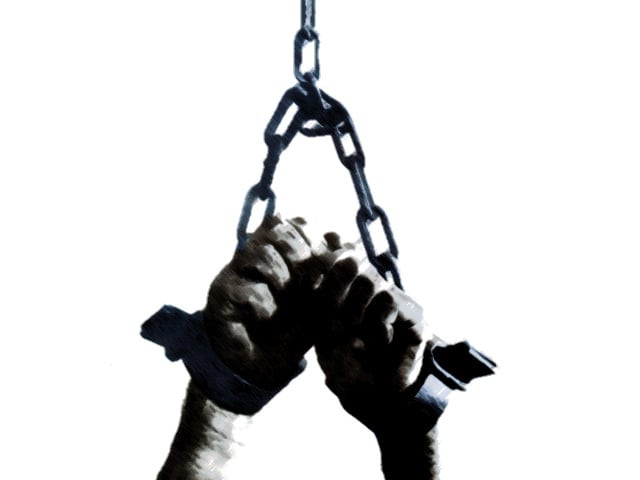After signing UN convention: Pakistan must make law against torture, say experts
National Campaign Against Torture holds consultative session.

Pakistan must make law against torture, say experts. PHOTO: FILE
Lawyers, civil society activists and other stakeholders of Pakistan’s criminal justice system called upon the government to introduce a comprehensive law against torture to comply with the United Nations Convention against Torture (UNCAT) which Pakistan ratified in 2010.
The demand came at a consultative session of the National Campaign Against Torture, held at a local hotel on Friday. The session was hosted by the Democratic Commission for Human Development (DCHD) in collaboration with Open Society Foundation and its partners.
The campaign is based on a baseline survey by DCHD, a Pakistani NGO, on the state of criminal justice system in three districts of Punjab. The survey found that more than 54 per cent accused complained they were tortured during police investigation and more than 50 per cent said their relatives had to bribe the police to escape torture.

As part of the campaign, seven consultative sessions were held at Islamabad, Lahore, Peshawar, Quetta, Multan, Hyderabad and Karachi. The sessions dealt with discussing ways the campaign could be run at the grassroots-level and in the media.
The issue of legislation against the torture was comprehensively brainstormed.
Kamran Arif, a prominent lawyer and consultant at the Human Rights Commission Pakistan, said it is important to first come up with a definition of torture before moving to make the law against it.
Arif said an independent investigation mechanism has to be devised and the judiciary’s tendency to grant physical remand liberally and frequently needs to be reduced in order to bring down torture.
He said courts must order medical exam of the accused before and after arrest and remand. Citizen committees could be helpful in preventing torture, he said.
Shafiq Chaudhry, the director of the Parliamentary Commission for Human Rights, said the United Nations committee that is overseeing the progress on UNCAT is now looking towards signatory states to form their own law.
Article II of UNCAT asks states who have ratified the convention to take judicial and administrative measures to frame own legislation and then move forward to set up infrastructure for its implementation.

Since Pakistan signed the convention in 2008 and ratified the law in 2010, Pakistan had sworn to make elaborate laws in the light of these conventions.
The National Campaign Against Torture’s campaign coordinator Arshed Mehmood said in the potential legislation against torture, if torture took place, the perpetrator would not be allowed to blame his superiors for ordering it.
Mehmood said a legal research team of the campaign is looking into the legislation to ensure a torture-free society while a media component deals with increasing the awareness of the public with regards to torture issues.
Published in The Express Tribune, November 9th, 2013.



















COMMENTS
Comments are moderated and generally will be posted if they are on-topic and not abusive.
For more information, please see our Comments FAQ